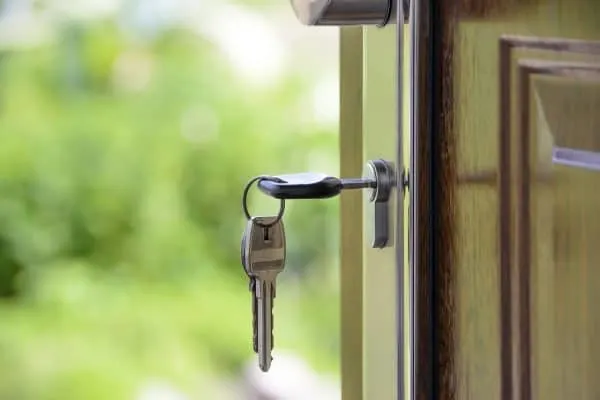
A new tenant moving into a new property is a stressful time for both the tenant and the landlord. If you are a new landlord, the stress of knowing what is expected of you before your tenant has moved in is increased.
Regardless of if you have inherited a property or have bought one as a way to provide extra income for your retirement – neither makes any difference to your obligations as a landlord.
When a new tenant is looking to move into your property, you want the process to be as seamless as it possibly can. As such, you want to ensure that you have everything in order, from certificates to functioning appliances in check before they move in. This will help to allow a smoother transition and reduce the risk of any issues occurring in the future. Here are things you need to prepare before having the new tenant move into your property.
Consider Landlord Insurance
Although it is not a legal requirement, it might be worth considering obtaining landlord insurance before you start renting out your property, especially being a first-time landlord.
Landlord insurance and home insurance are not the same. In addition to the buildings and contents cover, landlord insurance will also be able to include cover for loss of rent and landlords liability. This will give you peace of mind should any problems occur in the future.
EICR Report At The Ready
Currently, by law, electrical testing requirements for landlords means they need to have all of their electrical installations in the property inspected and tested by a qualified engineer or electrician at least every five years. An Electrical Installation Condition Report (EICR report) will be provided to the landlord following the assessment conducted by a qualified engineer or electrician.
Every time a tenant moves out, you do not need to carry out a new safety report. However, when new tenants move in, you must supply them with a copy of the new EICR report at the beginning of their tenancy.
For more information on your responsibilities as a landlord Multiquotetime provide detailed information on how you can obtain an EICR report and the expected cost.
Fire Safety Measures In Place
Unlike the EICR report for any installations on the property, you will not receive a certificate for fire safety. However, by law, you will need to have installed functioning smoke detectors and carbon monoxide alarms on every floor of the property. It will also be your responsibility to check that they do work. Failure to do so could result in a penalty.
Check Heating And Plumbing
Ensure that all of the utilities are working before the new tenant moves in. This includes checking that the heating works in all the room, there are no blockages or leaks in the plumbing, and the power sockets and lights in each room are properly working. These are all necessities that a tenant requires to ensure they maintain their quality of life whilst living on your property.
Update The Locks
Before the new tenant moves in, ensure that you have changed the locks on the doors. This should be done for the safety of the new tenant and also protect you from liability. You do not want an old tenant having the keys to the new tenant’s property.
Agree On Inventory
Both the tenant and the landlord must agree on the inventory either before the tenancy or at the very start of it. The inventory must be comprehensive, unbiased and provide a full written report of the condition of the premises. Additionally, it also must be agreed upon and signed by both the landlord (or agency) and the tenant.
The inventory is more than just the furnishings in the property, it is about the overall condition of the property before the tenant has moved in. This includes the cleanliness, the condition of internally decorated walls, as well as any damages to fittings and fixture. All of these are things to check before and after a tenant has occupied your property.
Check The References
The cheapest and easiest way to ensure that your new tenant is reliable is by carrying out tenant referencing. This involves conducting identity and credit checks, whilst seeking employment and previous landlord references.
Landlords across England must check whether or not their new tenants have the ‘Right-to-Rent’ before starting their tenancy, as stated in the Immigration Act 2014. The landlord is required to check all immigration documents and keep any copies. Conducting these checks are important and if you fail to comply, you could find yourself with a hefty fine.
Despite all the background checks you complete, your instincts can sometimes be the best judge of character. While they may look great on paper, this expectation might not be met when you meet in person.
You might follow tips on how to avoid problem tenants, however, you should trust your research and follow your instinct. After all, they will be living on your property so you want someone reliable and you do not have to worry about.
- Sagittarius Man & Gemini Woman Love and Sex Compatibility - January 31, 2024
- Taurus Ascendant Rising Personality Traits in Men (Guide) - January 31, 2024
- How to Seduce and Attract a Sagittarius Man (Seduction Tips) - January 31, 2024
